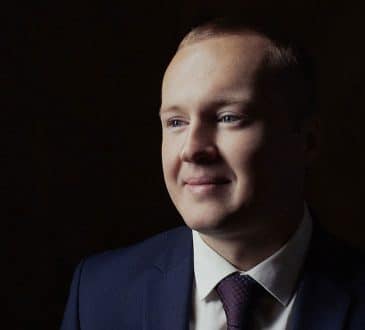Building High-Performing Engineering Teams: A Manager’s Playbook

The role of an engineering manager is a delicate dance between technical expertise and leadership. While strong technical skills are crucial, a manager’s true success lies in their ability to build and empower a high-performing team. This requires a multifaceted approach, encompassing talent development, project execution, and fostering a culture of technical excellence.
Think of it like this: The key to success is balancing strategy, culture, and execution. Of course, you want to be moving in the right direction and be set up to go the distance, but at the same time, you need to make continuous, measurable progress.
Building the Dream Team
The foundation of any successful team is its people. Great engineering managers prioritize building a diverse and skilled staff. This starts with identifying and attracting top talent. Effective leaders go beyond basic skills assessments, seeking engineers who demonstrate not only technical aptitude but also the right attitude — a willingness to learn, collaborate, and embrace challenges.
While that may sound out of character for a very process-oriented position that requires a lot of independent work, the final product, whatever it may be, is always a team effort. The ability to work both within the unit framework and independently can’t be underestimated. You need to find the right people for your project and your company, and not just the people who fit the technical specifications.
The culture at Amazon, for example, differs from that at Microsoft, Google, or Meta. While there are consistencies in what those entities are looking for (and what engineers are looking for), each situation is unique and should be treated as such.
But talent acquisition is just the first step. Creating a clear career development plan for each team member is essential. Great bosses understand individual strengths and weaknesses, providing targeted guidance and opportunities for growth. Regular performance reviews and feedback sessions ensure that engineers are constantly progressing on their professional journeys.
While this plays out more as engineers advance up the ranks (or not), the initial step here is crucial. If a high-performing engineer doesn’t see where their efforts will lead them, what’s their motivation to stay?
Delivering Predictably With Excellence
There are three dimensions of execution — and they all need to be part of the game plan. First, there’s velocity, how fast you can shop product features. Next, consider responsiveness, which relates to how quickly you can change course when the need arises. And then there’s the sum total of what you can deliver in a given time — throughput. You have to ensure your team is strong on all three fronts.
Once the crew is assembled, the focus shifts to project execution. Effective executives collaborate closely with product managers to translate customer needs into a prioritized road map. This road map considers not just features but also the technical feasibility and long-term health of the code base.
Breaking down the road map into achievable tasks and allocating them productively is key. Great managers understand the importance of balancing fundamental engineering work with testing, maintenance, and support activities. They ensure that processes like sprint planning and retrospectives are run efficiently, fostering transparency and continuous improvement.
Predictability is paramount. A great manager’s team consistently delivers on its commitments, exceeding expectations whenever possible. Metrics play a vital role here. Tracking progress against the plan and identifying and mitigating risks proactively helps ensure smooth execution.
Some jobs are difficult to “measure,” in that their output isn’t directly tied to product shipping, revenue generation, or other easily defined and accepted parameters.
Engineering, while not directly tied to a sale or client acquisition, does have accepted metrics for success, and articulating what those are, how to achieve them, and informing the engineers of resources available to them to get there goes a long way in fomenting loyalty.
A Culture of Technical Excellence
Technical excellence isn’t just about individual skills; it’s about fostering an environment where engineers can continuously learn and grow. Great managers lead by example. They stay up to date with the latest technologies, actively contributing to code reviews and design discussions. They champion best practices and encourage their squads to do the same.
This extends beyond individual contributions. Great managers encourage cross-team collaboration, ensuring a holistic approach to design and development. They empower their employees to contribute to the broader organization’s tooling and frameworks, fostering a sense of ownership and shared responsibility.
Again, the tethers that hold high performers, including managers, in place need to be in line with the company’s overall goals. While a technically proficient engineer is an asset, if their team isn’t communicating with user experience, design, sales, marketing, and other pieces of the overall pie, snags occur. Those snags can be minor, such as a slight delay in a deadline, or they can be catastrophic, imperiling the overall mission of the organization and leaving the various teams involved to wonder what went wrong.
The Road to Success
Building a high-performing engineering team is an ongoing process. Great managers understand this. They’re constantly learning, adapting, and refining their approach. They prioritize creating a space where engineers can practice their craft, experiment, and innovate.
What works for one team at one company may not work for another. There are innumerable reasons why, and trying to fit square pegs into round holes isn’t a viable solution. Gone are the days of the dictatorial manager, one who has their “philosophy” modus operandi and “ways” and that’s the path, no matter what.
The successful modern manager listens, learns, and adapts. They evaluate what they have and apply those resources in the manner that best fits both their company and, hopefully, their team. If the pieces aren’t there, they adapt to that as well and make the necessary changes to course correct.
By focusing on talent development, fostering a culture of excellence, and ensuring predictable, high-quality delivery, engineering managers can empower their teams to achieve remarkable things.
This is not to say there won’t be setbacks, even if the above is followed to the best of one’s ability. And that’s another element a strong manager needs to be able to face: failure. Trying new things can facilitate failure. But successful managers understand that failure, both by them and members of their team, is a necessary component to learning and, yes, adapting.
Being comfortable with failure but striving to avoid it is a tough balance, one that takes time and patience. And a very thick skin.
Steve Jobs was ousted from Apple after the initial failure of the Macintosh computer. Jack Ma, co-founder of Alibaba Group, was rejected from Harvard and lost out on a job at Kentucky Fried Chicken. Even Michael Jordan was cut from his high school basketball team.
Imagine what the world would be like if they’d given up.
Written by Amritansh Raghav.
Have you read?
Study: These are the Most Popular Tourist Attractions of America.
Study: Wealthiest Americans of All Time.
Revealed: The Biggest Beer Companies in the World, 2023.
Ranked: Most Popular Dog Breeds in the U.S. of 2023.
Revealed: Countries With the Highest Suicide Rates, 2023.
Ranked: These Are The Most Dangerous Jobs in the World, 2023.
Bring the best of the CEOWORLD magazine's global journalism to audiences in the United States and around the world. - Add CEOWORLD magazine to your Google News feed.
Follow CEOWORLD magazine headlines on: Google News, LinkedIn, Twitter, and Facebook.
Copyright 2025 The CEOWORLD magazine. All rights reserved. This material (and any extract from it) must not be copied, redistributed or placed on any website, without CEOWORLD magazine' prior written consent. For media queries, please contact: info@ceoworld.biz








